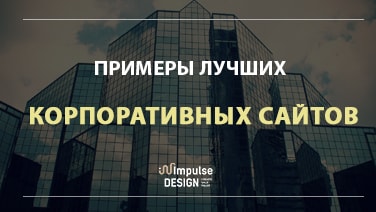Website promotion abroad
 Your business has gained good momentum in the Russian Internet space, and you want to expand the coverage area – to declare yourself abroad? In an era of ubiquitous rapid development of the Internet and other technologies, it is best to do this by promoting your website on the foreign Internet. However, this may not be as simple as it seems at first glance.
Your business has gained good momentum in the Russian Internet space, and you want to expand the coverage area – to declare yourself abroad? In an era of ubiquitous rapid development of the Internet and other technologies, it is best to do this by promoting your website on the foreign Internet. However, this may not be as simple as it seems at first glance.
Consider the features and some trends in the promotion of websites abroad on the example of the largest search engine Google.com.
Optimization of internal factors
The main features of internal optimization and site promotion abroad differ little from what our team does to promote in Yandex. The Google search engine draws attention to the following factors:
The presence of the request in the page header. The title makes it clear what will be discussed in the document. Accordingly, the title should be well-written and consistent with the content of the document.
Internal linking site. It is recommended to organize the structure of the site so that all its pages are accessible to the user by switching from the main one with only 2-3 clicks, which contributes to a better indexing of the site.
The presence of requests in the text of the page. Relevance – the main factor by which the search robot assesses your page in comparison with other documents of similar subjects.
Quality outgoing links. It is not recommended to link to other resources – this reduces the weight of your page, however, you can post links to trust resources of similar subjects.
The age of the document. The older the better. With age, the “trust” of the search engine to your resource increases.
The presence of the request in the header H1. Here again means relevance, logic, structure of the text.
The presence of a request in the URL or domain. Search engines encourage the presence of a request in the domain / URL higher positions in the search results.
Writing a request to the alt attribute of images. The alt attribute is also a link, so you need to make sure that its anchor is relevant (contains the necessary query).
Constantly updated unique content. The more frequently a site is updated, the easier it is to promote it. Search engines have more trust in constantly updated trust resources.
Correctly written meta tags. In particular, Google uses information from the description tag to form a snippet.
The text should be written in simple language and easy to translate into other languages. Search engines do not know the slang features of languages. Try to write texts in clear literary language, following the basic rules of the language. No need to use complex constructions of sentences, since the robot is unlikely to understand them correctly. Try to translate the page with the help of an online translator and check the correctness of the translation.
It is desirable to have a site version in English. English is the easiest to translate into other languages, and it is this language that Google developers use when communicating and building algorithms.
Thus, at the level of internal website optimization, the promotion of websites abroad practically does not differ from the website promotion in Russia. Their main share falls on external optimization.
Website promotion abroad – external factors
First, let’s list the basic minimum Google requirements for your site in terms of external ranking factors:
Texts incoming links. Anchors containing relevant queries have a positive effect on the ranking of your site.
Reference weight. The more high-quality thematic resources link to your site, the better.
Relevance backlinks. A link is considered more “weighty” if the keyword is contained in the title and / or text of the page of the resource referring to you.
Quality links. The higher the link is to the top of the page, the better. The fewer outgoing links on a page, the better. A link from a trust resource is valued higher.
Domain age. Age is directly proportional to the growth of search engine confidence in your site.
Subject backlinks. According to the search engines, thematic backlinks convey more weight.
Reference mass of thematic resource. Incoming links from thematic resources, which themselves have a high quality reference mass, are most appreciated.
Link age. The older the link, the more weight it transmits.
Gradual increase in reference weight. According to the search engine logic, an increase in content is associated with an increase in incoming links.
Circumference text. Relevant to the request, the text surrounding the outgoing link contributes to the transfer of more weight on the outgoing link.
The main conclusions that can be drawn from the listed external factors are that the Google search engine pays great attention to the reference mass of the resource. This is the main stumbling block in the promotion of websites abroad, since there are no links and articles in the foreign Internet that are usual for Russian optimizers. A natural question arises – how can we increase the link mass without being able to buy links? SMOs (optimization for social networks) and S come to the aid .




